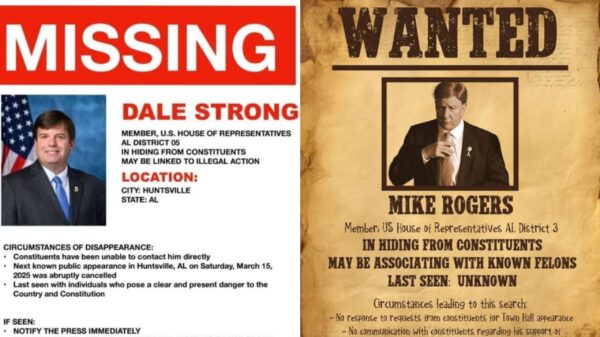By Brandon Moseley
Alabama Political Reporter
Tuesday, July 7, Congressman Gary Palmer (R-Hoover) announced his agreement with the recently announced decision of the Center for Medicare and Medicaid Services (CMS) to create a year-long transition period during the implementation of ICD-10, the coding system tied to Medicare and Medicaid.
Representative Palmer said in a statement “I applaud CMS for recognizing that the implementation of ICD-10 without a transition period threatened to disrupt health care for smaller practices and in rural areas. A more gradual transition to this new system will minimize disruptions in health care services for many patients in Alabama and across America. I am pleased that the medical sector and Congress came together to bring concerns about patient care to the forefront, leading to this transition period.”
Palmer is the sponsor of HR2652, The Protecting Patients and Physicians Against Coding Act, which attracted 45 co-sponsors including two Congressional Committee chairmen. Medical industry officials indicated that pressure from Congress led directly to CMS’s decision to create this transition period.
The Medical Association of Alabama President Buddy Smith MD said, “We appreciate Congressman Palmer’s leadership on this issue and know his efforts weighed significantly into CMS’s decision to allow an ICD-10 grace period for physicians and we look forward to working with him to further mitigate the negative effects of ICD-10 and the myriad of other unnecessary and burdensome federal mandates levied on medical practices.”
This decision largely mirrors Congressman Palmer’s HR2652, which would mandate a two-year transition period. Rep. Palmer said that many rural hospitals and smaller practices remain unready to implement ICD-10, and without a grace period, patients could face disruptions in health care services where they live.
Rep. Palmer said, “Many medical practices are facing serious problems with the implementation of ICD-10 and we should act to ensure there is no disruption in patient care.”
ICD-10 is the 10th revision of the International Statistical Classification of Diseases and Related Health Problems (ICD), a medical classification list by the World Health Organization (WHO). According to Wikipedia, the US uses the ICD-10 Procedure Coding System (ICD-10 PCS), a coding system that contains 76,000 codes not used by other countries.
The deadline for the United States to begin using Clinical Modification ICD-10-CM for diagnosis coding and Procedure Coding System ICD-10-PCS for inpatient hospital procedure coding was previously set for October 1, 2015, but that has already been extended two years from the previous 2014 and 2013 deadlines.
Under ICD-10: characters 1-3 are f0r the category of the disease; 4 is for the etiology of the disease); 5 is for the body part affected), 6 is for the severity of the illness and 7 is just a placeholder for extension of the code to increase specificity. Get the code wrong and the doctor’s office is not going to get paid by Medicare or Medicaid. Medical providers are having to switch over from the old ICD-9 codes which requires new software and on the job training for doctors, nurses, staff, and administrators.
The American Medical Association (AMA) said in a 2014 letter to the US Department of Health and Humans Services (HHS) that adopting ICD-10 is unlikely to improve the care physicians provide their patients and that small practices could have to spend $225,000 in extra administration to comply with ICD-10; for mid-size practices the cost is estimated at $825,000; and for some large practices it could cost more than $8 million to meet the ICD-10 mandate.
Congressman Gary Palmer represents Alabama’s Sixth Congressional District where many residents work in the healthcare care sector.





















































